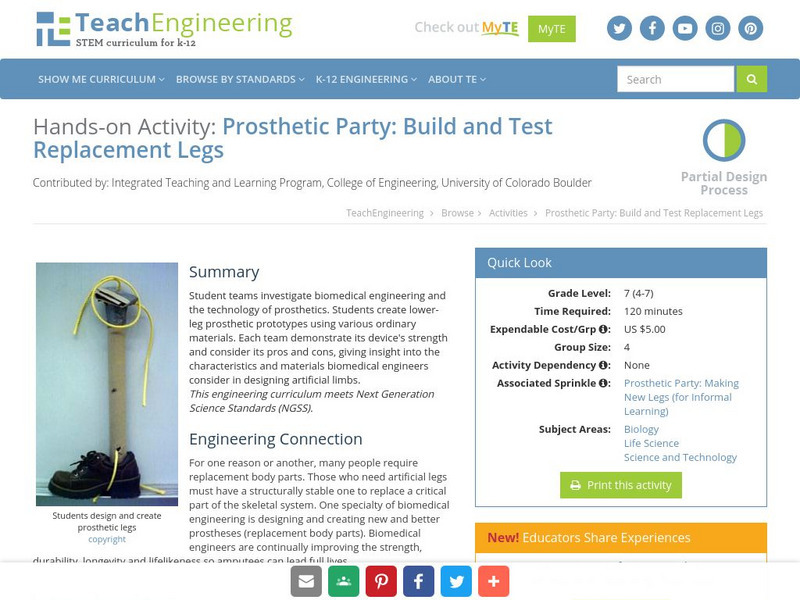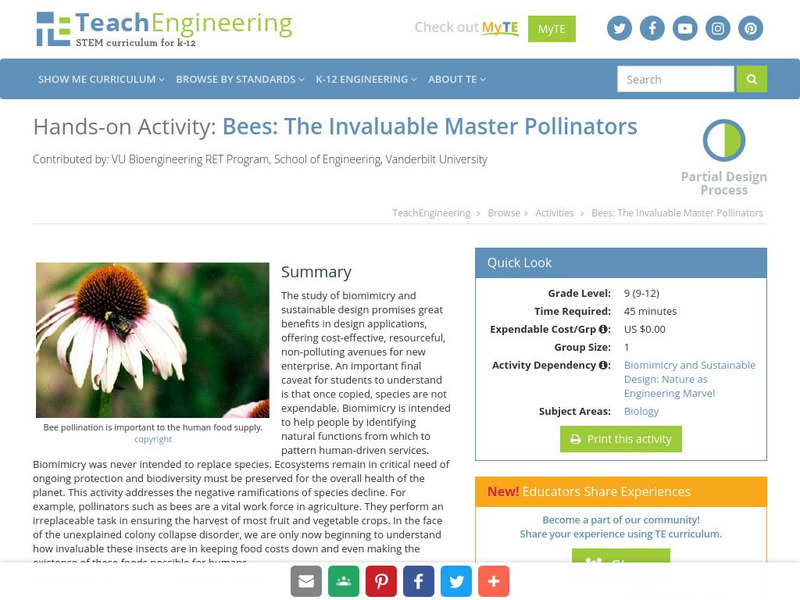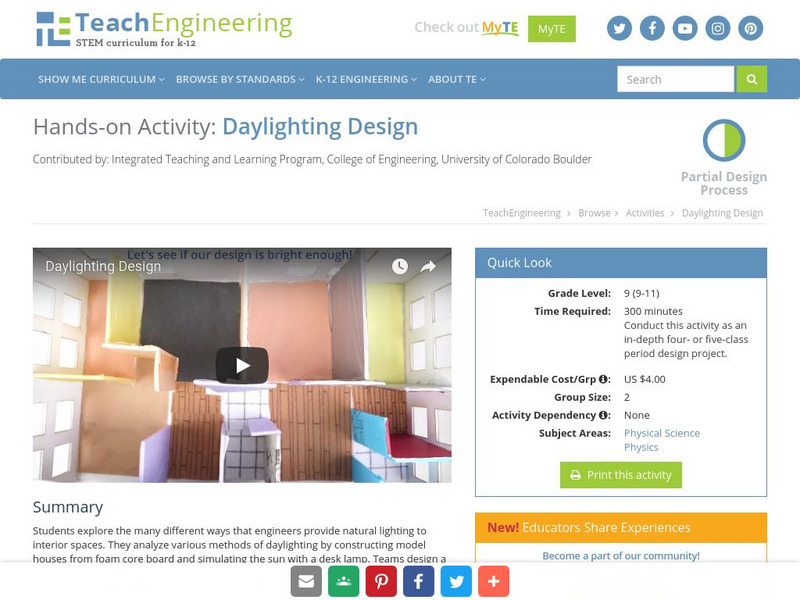TeachEngineering
Teach Engineering: Latex and Hybrids: What's the Connection?
An engineering challenge where young scholars create small-scale models from which their testing results could be generalized to large-scale latex tubing for a hydraulic accumulator. They brainstorm ideas about how latex can be used in a...
TeachEngineering
Teach Engineering: Drawing Designs in Detail
Students practice creating rudimentary detail drawings. They learn how engineers communicate the technical information about their designs using the basic components of detail drawings. They practice creating their own drawings of a...
Tufts University
Tufts University: Novel Engineering: Books
This collection of classroom books shows how students can identify engineering problems in a novel. Each book is accompanied by a plot synopsis, problems students have noted, and solutions they have come up with and built in their...
TeachEngineering
Teach Engineering: Prosthetic Party
Student teams investigate biomedical engineering and the technology of prosthetics. Students create a model prosthetic lower leg using various materials. Each team demonstrate its prosthesis' strength and consider its pros and cons,...
TeachEngineering
Teach Engineering: Concentrating on the Sun With P Vs
Students design, build and test reflectors to measure the effect of solar reflectance on the efficiency of solar PV panels. They use a small PV panel, a multimeter, cardboard and foil to build and test their reflectors in preparation for...
TryEngineering
Try Engineering: Water Rocket Launch
The main focus of this lesson is learning about aerospace engineering and the principles of rocketry. To accomplish this, students will work in teams to design, build, and launch a rocket made out of a soda bottle, then present their...
TryEngineering
Try Engineering: Measuring the Wind
Students explore the design of anemometers and how they are used in measuring the speed of wind. Working in teams of "engineers", they will design, build, and evaluate the effectiveness of their own anemometers, presenting their findings...
TryEngineering
Try Engineering: Oil Spill Solutions
In a lesson to teach young scholars about the field of environmental engineering, they examine an oil spill, then design a system to contain the oil and extract it from the water.
TeachEngineering
Teach Engineering: Protecting Our City With Levees
Students design and build their own model levees. Acting as engineers for their city, teams create sturdy barriers to prevent water from flooding a city in the event of a hurricane.
TeachEngineering
Teach Engineering: Fun With Air Powered Pneumatics
Working as engineering teams in this introductory pneumatics lab, students design and build working pneumatic (air-powered) systems. The goal is to create systems that launch balls into the air. They record and analyze data from their...
TeachEngineering
Teach Engineering: Bees Are Master Pollinators
The study of biomimicry and sustainable design promises great benefits in design application. It affords means by which to promote cost-effective, resourceful, non-polluting avenues for new enterprise. These "blueprints" have existed...
TeachEngineering
Teach Engineering: Daylighting Design
Students explore the many different ways that engineers provide natural lighting to interior spaces. They analyze various methods of daylighting by constructing model houses from foam core board and simulating the sun with a desk lamp....
TeachEngineering
Teach Engineering: The Three Color Mystery
Students are introduced to an engineering challenge in which they are given a job assignment to separate three types of apples. However, they are unable to see the color differences between the apples, and as a result, they must think as...
TeachEngineering
Teach Engineering: Engineering Brainstorming
Students act as an engineering consulting firm with the task to design and sell their idea for a new vehicle power system. During the brainstorming activity (Generate Ideas), students determine and comprehend what type of information is...
Technovation
Curiosity Machine: Challenges: Engineer an Ocean Bottom Sampler
Can you design a tool that can lift objects from a water depth of at least 1 foot? This website contains the design challenge, tips, a lesson plan, and a place for students to document their design process.
TeachEngineering
Teach Engineering: Trade Offs and Maximizing Efficiency in a Fast Food Restaurant
Students learn about how to improve efficiency by examining fast food restaurants. More specifically, they learn about the concepts of trade-offs, constraints, increasing efficiency and systems thinking. They consider how to improve the...












